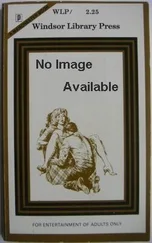Paul Theroux - The Black House
Здесь есть возможность читать онлайн «Paul Theroux - The Black House» весь текст электронной книги совершенно бесплатно (целиком полную версию без сокращений). В некоторых случаях можно слушать аудио, скачать через торрент в формате fb2 и присутствует краткое содержание. Год выпуска: 1996, Издательство: Penguin Books, Жанр: Современная проза, на английском языке. Описание произведения, (предисловие) а так же отзывы посетителей доступны на портале библиотеки ЛибКат.
- Название:The Black House
- Автор:
- Издательство:Penguin Books
- Жанр:
- Год:1996
- ISBN:нет данных
- Рейтинг книги:4 / 5. Голосов: 1
-
Избранное:Добавить в избранное
- Отзывы:
-
Ваша оценка:
- 80
- 1
- 2
- 3
- 4
- 5
The Black House: краткое содержание, описание и аннотация
Предлагаем к чтению аннотацию, описание, краткое содержание или предисловие (зависит от того, что написал сам автор книги «The Black House»). Если вы не нашли необходимую информацию о книге — напишите в комментариях, мы постараемся отыскать её.
The Black House — читать онлайн бесплатно полную книгу (весь текст) целиком
Ниже представлен текст книги, разбитый по страницам. Система сохранения места последней прочитанной страницы, позволяет с удобством читать онлайн бесплатно книгу «The Black House», без необходимости каждый раз заново искать на чём Вы остановились. Поставьте закладку, и сможете в любой момент перейти на страницу, на которой закончили чтение.
Интервал:
Закладка:
“Perhaps a relative of yours,” said Munday. “Your son’s wife? You’re not the woman we’re looking for.”
“My children are dead. There’s only Sam.”
Munday laughed, but without pleasure. He said, “This is all very confusing.”
The woman looked closely at Munday. She said, “Are you from the Water Board?”
“No,” said Munday. He explained his errand and showed the woman the scrap of paper with the address written on it.
She said, “That’s over there.”
“They sent us over here.”
“I’m sorry,” said the woman. There was a cry from within the cottage, an old man’s voice cracking with impatience. The woman said to Munday, “Sam.”
“Is there any other family by the name of Seaton in the village?”
“Used to be. This was years ago. But they went to Australia.” The woman was closing the door. “Bye now—mind how you go.”
Munday said, “Are we losing our minds?”
Emma closed her eyes.
“Looks like we’re stuck with that Mrs. Branch,” he said.
Emma called her by her first name, Pauline; Munday called her “Branch,” and sometimes “Mrs. B.” She began work the week before Christmas, and her first chores were those hard ones, the neglected windows, the rugs that had lain unbeaten for over a month, the jumble of boots and walking sticks in the back passage that needed sorting out. Mrs. Branch had been nervous in the interview; occupied with housework she was calm, single-minded, but apt to overdo things. She washed the windows in the shed and she beat the hall carpet so hard she broke the rope on which it was suspended. Munday took an interest in her and watched her closely, but his unfriendly humor only bewildered her.
He saw that she carried envelopes of artificial sweetener in her handbag, for the tea she drank in the middle of the morning. She explained that she was dieting.
“Then you won’t want a lunch hour, will you,” said Munday, masking his irony with briskness.
“Sir?” Mrs Branch was uncertain. She gave Emma a slow puzzled look.
“Don’t pay any attention to him,” said Emma. “He’s joking.”
“I was wondering,” said Mrs. Branch, and seemed glad to return to scraping soot from the stovepipe.
She had a full round face and grew hot when she worked, and heavy arms, and when she sat she pushed her hands together, hugging herself with her elbows to hide her bulk. She wore high leather boots with her plain clothes, and eye make-up—green lids and black streaks on her plucked eyebrows. She said she was twenty-three, but she had the careworn movements and sighing obedience of a woman twice that age. After a day or two Munday knew her habits. She was noisy, and appeared bewildered when Munday called attention to her noise. She banged pots and slammed doors and dragged chairs back and forth on the hard kitchen floor. She walked through the house setting her feet down as if she were dropping bricks. Munday detested her boots and told Emma that she knew how to go up the wooden stairs on her heels. He said angrily, “Listen to her!” She played the radio and murmured to the music, and when she was vacuuming she turned the radio louder so that she could hear it over the racket of her cleaning. Munday, calling out “Branch!” put a stop to the radio, and he urged her to be quieter. She said, “Yes, Doctor” in the broad accent that Munday associated with ridicule.
But she was useful, she was of the village, a local. She brought them news; of deaths and accidents, of animals she had seen flattened on the road on her way to work. She was their only link with the village, so after the first few days Munday approached her with inquiries, about his stolen dagger and the mysterious Mrs. Seaton—but she said she couldn’t help him. She was cheerful and came each morning with a weather report; her predictions were usually accurate. Apart from her talk of the weather she said very litde.
Munday refused to eat with her, but he still attempted to engage her in conversation. She let it drop that she had been bom in Toller Porcorum. Munday said, “Tell me a little bit about it.” It was from Mrs. Branch that Munday learned the pronunciation of local place-names, Beaminster, Puncknowle, and Eype. And Munday often found himself (holding up a pair of secateurs or an axe from the shed) asking, “What do you call this?” Like the Africans whom he had also questioned in this way, she was at first suspicious of his interest in details of puzzling insignificance.
He asked her how she heated her cottage and was not satisfied until she described every stage of the procedure; why did she butter the end of the bread loaf before she sliced it? How had she met her husband? How long had they courted? Why had they moved to Four Ashes? He led up to intimate questions by telling her of Bwamba customs. “In Africa, he said, “if a pregnant girl marries a man who is not the father of her child she has the option of strangling it at birth.”
“Well, I wouldn’t know about that,” she said, but talked more easily of childbirth then. She had two children, she said, and would bring them around one day for Munday to see.
“That won’t be necessary,” said Munday. He went on to tell her of the Bwamba marriage ritual, the groom’s brothers joyously pissing on a stool, the groom placing his hands in it and then the naked bride sitting on his hands; the consummation that was virtually rape, and the brothers’ freedom in sharing the wife later. Simply, he described the patrilineal society. Mrs. Branch was outraged, but talked about her own marriage. Munday established contact with her, and though his questions were intimate his manner was academic, and he maintained an interviewer’s distance. He saw that she enjoyed being questioned about herself; she was discovering with curious surprise that her life, seemingly so dull, was worthy of attention and even important to this stranger.
“We call that a rake,” she said one day in answer to a question of Munday’s. He threw the tool aside and went into the house.
On her fourth day she arrived early, before eight, in the morning darkness that was like night. Coming down to breakfast Munday saw her seated at the kitchen table, tapping a small envelope of sweetener into her coffee.
“Morning, Branch,” he said, but nothing more. He had no conversation at breakfast—breakfast being for him not so much a meal as a way of preparing himself for surroundings his sleepless nights seemed to rearrange: breakfast was over when he was calm. He was slightly antagonized by the girl seated at his table while he was standing. He would not join her. He decided to stall for time by reading the paper. But it was not on the table and not outside the door.
“They haven’t brought my Times ” he said.
“I put it on the chair,” said Emma, who was at the Rayburn, frying Munday’s egg.
“Oh, here it is, Doctor,” said Mrs. Branch. “I were sitting on it.” She handed it to him with an apology.
Munday tossed it on the sideboard. The paper was crushed, rounded to a template the shape of her bottom. He could not read it; he could not bear to put his fingers on it or have it near his food. He went into the living room and sat brooding until he heard the bangings and clatter that told him Mrs. Branch had begun her work.
While she worked, padding busily from room to room on the stocking feet Munday demanded of her, Munday sat at his desk in the study. Mrs. Branch had restored a superficial order to the house and Munday felt some of his solitude return. The balance was Mrs. Branch’s, for it was a house that needed a servant and Munday had come to depend on houseboys; the house was too large to be run by a man and wife; a marriage could not fill it or make it work. Mrs. Branch did more than clean; she aided the marriage, she justified the size of the house—without her he sometimes felt the house would have been insupportable. Emma’s cleaning had made him guilty, Mrs. Branch’s efforts gave him freedom—the attraction of any good servant—and allowed him time to think. Soon, without using his notes he started to write—an introductory paragraph, a page of description, then several. It was the way, he imagined it would be, working by a country window, writing in longhand, the fan-heater whirring at his feet, his privacy secured by watchful women.
Читать дальшеИнтервал:
Закладка:
Похожие книги на «The Black House»
Представляем Вашему вниманию похожие книги на «The Black House» списком для выбора. Мы отобрали схожую по названию и смыслу литературу в надежде предоставить читателям больше вариантов отыскать новые, интересные, ещё непрочитанные произведения.
Обсуждение, отзывы о книге «The Black House» и просто собственные мнения читателей. Оставьте ваши комментарии, напишите, что Вы думаете о произведении, его смысле или главных героях. Укажите что конкретно понравилось, а что нет, и почему Вы так считаете.












